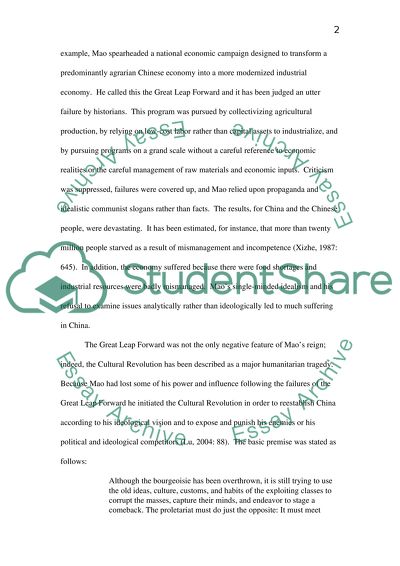Mao Zedong Essay Example | Topics and Well Written Essays - 500 words. Retrieved from https://studentshare.org/miscellaneous/1514626-mao-zedong
Mao Zedong Essay Example | Topics and Well Written Essays - 500 Words. https://studentshare.org/miscellaneous/1514626-mao-zedong.


